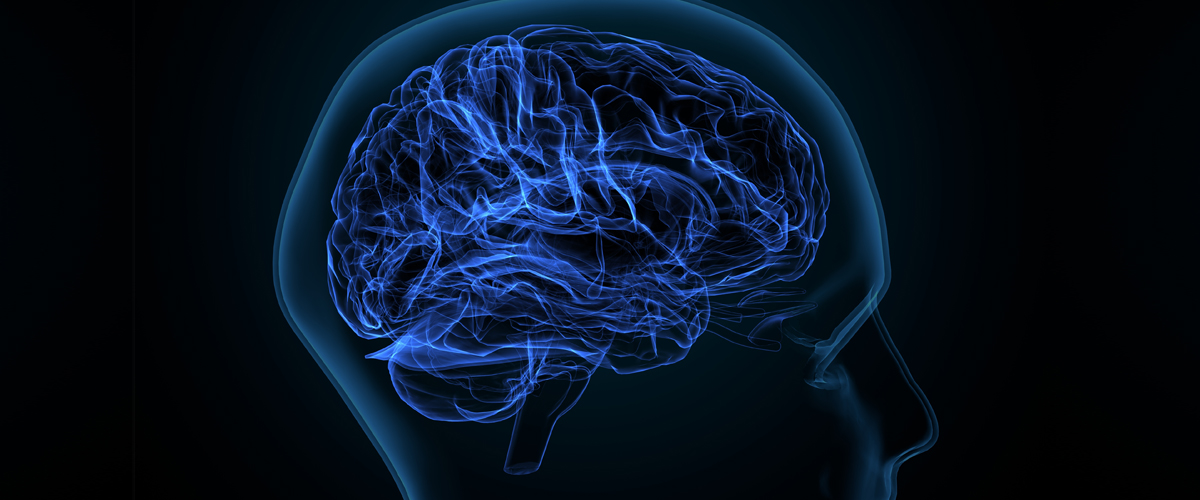What to Know about Frontotemporal Dementia
The neurological disease known as FTD is a common form of dementia in people under the age of 60.


Frontotemporal dementia (FTD) is a neurological disorder in which nerve cells in the frontal and temporal lobes of the brain decrease, impacting a person’s behavior, language, and movement. It is the most common form of dementia for people under the age of 60, according to the Association for Frontotemporal Degeneration. Recently, the family of actor Bruce Willis announced that his previous diagnosis of aphasia had progressed into FTD, raising awareness of a devastating condition that affects an estimated 50,000 to 60,000 Americans.
Health Matters spoke with Dr. James Noble, a neurologist at NewYork-Presbyterian/Columbia University Irving Medical Center who specializes in the treatment of dementia, to get the facts about FTD, including how it’s different from other neurological diseases like Alzheimer’s, symptoms such as personality changes and speech problems, and treatments.
What is frontotemporal dementia?
Frontotemporal dementia (FTD) is an umbrella term referring to several forms of dementia with overlapping symptoms and genetic causes. There are two main forms of FTD: a behavioral form and a language form.
In the behavioral form, dysfunction of the frontal lobes of the brain can cause changes in attention and concentration, problems organizing thoughts, and profound personality changes, such as obsessive-compulsive disorders, changes in relating to other people, lack of empathy, irritability, and uncontrollable sadness or laughter. The behavioral symptoms in FTD may be subtle at first but often come to define the illness.
In the language form, there can be a loss of fluency in speaking, called progressive non-fluent aphasia. In non-fluent aphasia, gradual changes emerge with disrupted, halting, or disjointed speech becoming apparent. Another less common language form, called semantic dementia, has a loss of information associated with words and objects.
Both language and behavioral forms of FTD may be accompanied by physical slowness, tremors, or balance problems called parkinsonism, or a disorder of muscle weakness called amyotrophic lateral sclerosis (ALS), also known as Lou Gehrig’s disease.

Dr. James Noble
What causes FTD?
We are able to identify and understand some of the microscopic changes that cause dementia, but do not yet know what specifically causes FTD. Among the causes of dementia, FTD is unique in that about one-third of all people with FTD will have a family history, which is suggestive of a genetic link. Several genes have been implicated in FTD, and genetic testing is more often discussed and considered in FTD than in other dementias.
Can FTD be prevented?
Because the causes are not yet known, there are also no known strategies to prevent FTD. Those who have a family history of the disease may choose to work with a genetic counselor along with obstetric specialists to try and eliminate the chances of the gene being passed on through the family.
How is it diagnosed?
The process for diagnosing FTD is similar to the process for people being evaluated for other more common causes of dementia, such as Alzheimer’s disease. An evaluation typically begins with the clinician taking a history, performing physical and neurologic examinations, and ordering laboratory work and brain imaging. Since some clinical and imaging features in FTD may be confused with other neurological diseases, additional diagnostic testing may be done, such as a spinal fluid analysis or scans that can show how the brain both appears and functions. Brain imaging of patients with FTD will reveal atrophy or shrinkage in frontal and temporal lobes, while patients with Alzheimer’s disease are more likely to have changes in the size and shape of the hippocampus, a key structure in the middle of the temporal lobe.
Why is FTD commonly misdiagnosed?
FTD can be misdiagnosed because some clinical features overlap with other diseases. For example, Alzheimer’s disease and FTD can present with memory loss or a language disturbance. But as with other forms of dementia, the earliest symptoms of FTD often determine how the doctor makes the clinical diagnosis. With FTD, behavioral personality changes are sometimes seen before or at the same time as cognitive changes. Poor speech fluency can be another clue, and neuropsychological testing can be especially helpful in identifying executive or language dysfunction in FTD.
Some of these steps are meant to rule out other causes and leave FTD as the remaining and likely cause, but scientists are working to develop more precise, faster paths to diagnose FTD.
Is FTD fatal?
Dementia itself is not fatal. Complications due to dementia can be fatal, but this is most often years after diagnosis. Most forms of dementia progress slowly, unless the patient experiences a catastrophic event, such as a fall or a complication from a medical illness. People with dementia who gradually progress into a severe stage may develop complications from immobility and begin to experience problems from becoming bedbound or not being able to chew or swallow, which can lead to problems maintaining nutrition. But this all depends on the age when symptoms began, the general underlying health of the person with dementia, and the medical and emotional support to which they have access, especially in later stages.
How is FTD treated?
While we do not have any available treatments, yet, to impact the biology of disease, we can use medications to treat the symptoms of disease, ranging from memory to mood. Speech therapy may also be a tool to help those with aphasia or language challenges. We rely on committed persons and families affected by FTD to help us better understand and treat the disease, and we always encourage families affected by dementia to consider being a part of research, which at our center includes a range of studies from early stage to late stage, which offer new potential treatments and follow people over time.
What can the patient and family members expect as the disease progresses?
Progression in dementia depends on the underlying cause. With Alzheimer’s and FTD, progression is gradual but becomes more obvious and severe over time. This means behavioral or language changes can become more apparent as the disease progresses, and often the most profound changes in behavioral FTD are the distinct changes in personality. Generally, most people become quieter, more docile, more confused, and less mobile over time. We encourage families to work with their loved ones to establish a shared understanding of how they wish to receive care over the course of the illness, or how they would mostly likely wish to receive care if they are unable to clearly indicate that for themselves by the time they are diagnosed.
What should family members, caregivers, or loved ones know about living with someone with FTD?
With a diagnosis of FTD or any kind of dementia, I encourage families to consider this being the next chapter of their lives and to look for the opportunities to find joy in life. I often ask families to focus on what someone can do and engage them in that to the extent possible to help maintain their quality of life. Other supportive activities can be a meaningful way to restart or retain a connection with someone affected by dementia, particularly through art, music, physical activity, and trying to find as much joy as possible in the day-to-day routines.
James Noble, MD, MS, is a neurologist with NewYork-Presbyterian/Columbia University Irving Medical Center and an associate professor of neurology at Columbia University Vagelos College of Physicians and Surgeons who specializes in dementia and better understanding its risk factors. Dr. Noble directs and supports several longitudinal NIH-supported research initiatives related to Columbia’s Alzheimer’s Disease Research Center, which aim to identify novel modifiable risk factors for cognitive aging and improve public health literacy. He is the author of “Navigating Life with Dementia,” a handbook for dementia caregivers. Dr. Noble also co-founded Arts & Minds, a non-profit organization promoting well-being for dementia patients and their caregivers via art-centered, museum based experiences.

